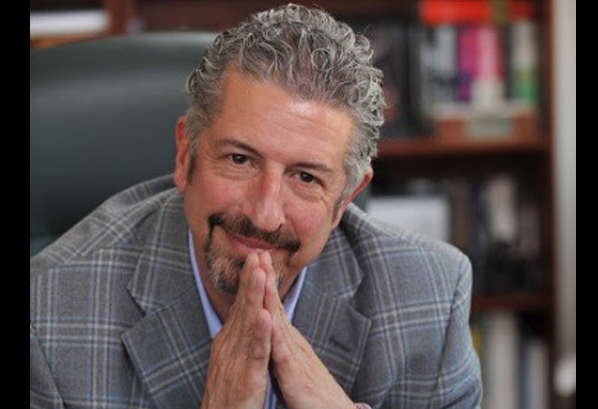By Alison Berstein, Bulletin Correspondent
‘Attitude plays a huge role in your audience, employees, and customers. As long as we’ve got a positive attitude and feel that there’s a true future in these industries, it helps you prepare and develop the future of media.’
— Tom Yunt,
Chief operating officer,
United Communications Corporation,
Kenosha, Wis.

Tom Yunt lives by simple advice: “There’s an old saying: The world revolves around aptitude and attitude.”
Yunt is chief operating officer of United Communications Corporation, a multimedia company based in Kenosha, Wis., that owns The Sun Chronicle of Attleboro, Mass. He thinks that a positive attitude can help a workplace thrive, particularly in news companies.
“Attitude plays a huge role in your audience, employees, and customers,” Yunt said. “As long as we’ve got a positive attitude and feel that there’s a true future in these industries, it helps you prepare and develop the future of media.”
Yunt is scheduled to discuss those ideals during his keynote speech at the 2017 New England Newspaper Conference. The speech will be at 11 a.m. Thursday, Oct. 12, at the Crowne Plaza hotel in Natick, Mass.
His working title for his talk is “The Newspaper Sur-THRIVAL Guide: Newspaper 101 in the 21st Century.”
“The really good cutting-edge companies learn how to balance survival and thrival,” Yunt said, referring to his working title. “A lot of smaller or medium-sized media companies are maybe focusing on survival and not enough on how do they go forward.”
Today’s news environment is one whose future and even whose present is unsure, he said.
“It changes every single day and that’s what makes it fun and challenging,” Yunt said. “It keeps you awake at night.”
Besides the Sun Chronicle and The Foxboro (Mass.) Reporter, United Communications Corporation owns daily newspapers in Wisconsin, weeklies in Illinois and Wisconsin, and television stations in Minnesota and New York.
On its website, the company lists “spreading good cheer” as one of its core values. Yunt thinks that spreading good cheer shows people involved in all elements of a company that they are valued.
“It’s all about telling both internal and external customers ‘thank you,’ and being appreciative of our history and culture and ownership,” he said.
Expressing appreciation for the various communities in a company “reinforces our commitments in work-life balance,” he said.
“We want people to work hard and have fun at work,” he said. “If you don’t enjoy work and your co-workers and the mission of the company, that can be a pretty miserable existence.”
Valuing its audience is crucial for a company to reach that audience effectively, Yunt said.
“We thrive because we’re reaching more people than we ever have before,” he said. “Media companies have multiple and evolving platforms – traditional or nontraditional. How do you connect to that growing audience?”
Audience outreach starts at the local level, Yunt said.
“What’s in my backyard?” he said, quoting another old saying.
Local news is an irreplaceable asset in a world of information overload, Yunt said.
“I hope the next generation of media consumers steps back and thinks about where information is coming from. Is it from somewhere they can trust; is it accurate?” he said.
“So much information is claimed by six-second videos and 140-character tweets that I’m not sure that the quality they’re receiving and the depth they’re consuming is really the full picture to form an opinion,” he said. “I hope (news consumers) really come to understand the importance of local news to a community.”
Reaching out to an audience more effectively – and thus with any luck, functioning as a company more effectively – also involves letting go of traditional practices that are no longer working, Yunt said.
“Completely vanquish the statement you hear in a lot of companies: ‘This is the way we’ve always done things in the past’,” he said. “Truly adopt and come to grips with traditional media and digital social media platform execution. Get prepared for a new generation of employees.
“It’s a very deliberate balancing act,” he said.
Yunt has his eye on the future of the news industry, because that industry is “fragmented but opportunistic,” he said.
“What are we doing to prepare the next generation, the succession of our business models?” he asked.
“Sur-Thrival” in the news environment is not an issue with a one-size-fits-all solution, Yunt said.
Instead, it is “a mystery that many in this business – broadcast, print, and digital – are trying to figure out,” he said.
To home in on a solution to that mystery, today’s journalists need to keep an open mind, Yunt said.
“Be aware and have your finger on the pulse of what’s going on at this moment,” he said. “Garner that knowledge, watch your competitors. It’s an evolving process.”
